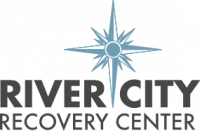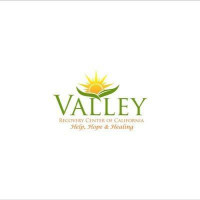Gateway House for Women
Drug Rehab Center in Sacramento, California
Gateway House for Women is a comprehensive addiction treatment facility located in Sacramento, California dedicated to providing individuals struggling with substance abuse and/or alcoholism with the highest level of care, best practices and evidence-based therapies, and long-term sobriety through personalized attention.
About Gateway House for Women in California
Gateway House for Women is a rehab facility located in Sacramento, California, that provides substance abuse treatment exclusively for women. This unique facility offers a residential treatment program with 15 beds, focusing on strength-based living, therapy, and aftercare to help women achieve a sober and productive life.
• Experienced staff and Board of Directors with expertise in transitional living, substance abuse recovery, and aftercare programs
• Culturally competent educational and counseling services, as well as trauma-informed therapy sessions
• Structured daily activities, regular physical exercise, professional individual counseling, and an introduction to 12-step program meetings
Gateway House for Women is accredited by JCAHO, ensuring a high level of quality and safety in their services. The residential program provides a "home-like" environment, teaching women that there is life after recovery and equipping them with the tools needed to maintain sobriety.
The facility specializes in treating alcoholism, substance abuse, opioid addiction, dual diagnosis, and drug addiction. They offer detox services, aftercare support, and family therapy to ensure a stable recovery, providing a valuable foundation for women to lead a sober life.
Genders
Ages
Modality
Additional
Accreditations

JCAHO
Conditions and Issues Treated
Rehabilitation, Medication, and Therapy – a combination of all three is most effective.
The most successful treatments for drug dependence or abuse have been those that include education and counseling and medication such as methadone or buprenorphine. The right drug abuse treatments need counseling, psychotherapy, and detoxification or medications to help with withdrawal symptoms.
Substance abuse can take many different forms, including the overuse or misuse of prescription drugs, unprescribed drugs, alcohol addiction, and drug addiction.
A combination of treatments is often needed to treat drug abuse issues effectively. In the case of drug abuse, there is no easy answer or one-size-fits-all cure.
While some drug addictions can be treated with counseling and support groups, many drug abusers also need medication to help them overcome their addiction. In other cases, drug abuse can lead to a medical problem and require medical treatment.
Treatment for drug addiction typically combines counseling and psychotherapy with medication and behavioral therapies. In some rare cases, hospitalization may also be required. All different treatments combined are the best way to help someone addicted to drugs, alcohol, or other substances.
Treatment for opioid addiction is best made with the help of medical professionals who are experienced in dealing with these types of drugs. This treatment can involve medications, exercise, behavioral therapy, and counseling sessions. It is important to note that the effectiveness of treatments for opioid addiction vary, so it is vital to research which treatment options are suitable for each individual.
Many people who struggle with opioid addiction need to attend specific programs like methadone , Suboxone or Vivitrol clinics.
These types of programs will provide the patient with legal, prescription medications that can help them overcome their cravings for illegal opioids like heroin or fentanyl . If the patient has a chronic condition like Hepatitis C, they must undergo treatment before they can begin taking these medications.
Individuals who are addicted to drugs and/or alcohol often have one or more co-occurring mental health disorders. Addressing both the addiction and the mental health problems at facilities like Gateway House for Women can be very beneficial for these individuals.
Common mental health conditions that often co-occur with addiction include:
- Anxiety Disorders – People with drug and alcohol problems often suffer from anxiety disorders such as panic disorder, obsessive-compulsive disorder, social anxiety disorder, and generalized anxiety disorder.
- Depression – One of the most common mental illnesses co-occurring with addiction is major depressive disorder.
- Attention-deficit hyperactivity disorder (ADHD) – Many people with drug and alcohol problems also suffer from ADHD.
- Bipolar Disorder – People with bipolar disorder are more likely to suffer from drug and alcohol problems than the general population, and vice versa.
Levels of Care Offered
This center offers a variety of custom treatment tailored to individual recovery. Currently available are Aftercare Support, Dual-Diagnosis, Inpatient, Sober-Living / Half-Way, with additional therapies available as listed below.
Inpatient recovery offers individual therapy, groups, and family therapy. The length of inpatient addiction treatment depends on the addict and their addiction. Inpatient rehab is a costly drug treatment, costing anywhere from $30k- to $60k. However, insurance often offers help in covering these costs.
Sober living homes are transitional houses for recovering addicts who need more structure than they would receive in an aftercare program. Specific rules and regulations are enforced in these homes, which are beneficial for people who need a greater degree of structure than other types of treatment.
Sober living home options include:
- Live-in managers – might be beneficial to people who do not have a support system in place at home, or who experience high levels of stress between work and home life.
- House managers – House managers are beneficial for people who do not have a strong social network to rely on, or who are concerned about relapse in their daily lives.
- House parents – House parents are beneficial to people who reside in areas without a strong aftercare program for support.
Aftercare support is vital to those who have completed a drug or alcohol treatment program. This support comes in individual and family counseling, treatment of psychiatric and other medical conditions, and medications to reduce cravings. It helps recovering addicts adjust to normal day-to-day activities and can last for a year or longer.
The majority of drug and alcohol addicts who receive aftercare treatment do not relapse. It is estimated that without aftercare, the relapse rate will be between 70 to 90 percent for most people. Aftercare is the final stage in addiction recovery, but it will also help maintain sobriety if relapse does occur.
Therapies & Programs
Individual therapy is ideal for addicts who want to focus on themselves. It can also be helpful for those whose withdrawal symptoms are exacerbated by the presence of other people.
Benefits of individual therapy are:
- Access to a personalized treatment plan that focuses on the individual needs of the addict
- More privacy during treatment sessions
- Better personal development through introspection
- Increased self-awareness regarding addictive tendencies in order to avoid relapse
- Greater potential for a long-term recovery plan
- Receiving professional advice and detox assistance from medical staff
Family therapy can help you and your family deal with old issues that may trigger substance abuse. The idea behind family therapy for drug addiction is that you are never fully healed from substance abuse until you’ve healed your relationship with your family, too. To get sober, you need to find a different way to cope with the pain in your life.
This is when a group of people in various stages of recovery meet up and discuss their experiences, triggers, successes, failures, and even alternative therapies! Unlike support groups where everyone already knows each other, group therapy is conducted along side outpatient or inpatient treatment at Gateway House for Women.
Trauma therapy is a clinical process that helps individuals deal with mental stress often caused by traumatic events. The therapist helps the person identify, understand and work through the problem. This is done with the help of talking about it in group or one-on-one counseling sessions.
Therapists use relaxation, role-playing, art, and music to help the person open up about what is bothering them. Some examples include:
- Talking about the traumatic event and how it affected them.
- Helping those who have PTSD to deal with their nightmares and recurring memories.
- Working with individuals to resolve the issues triggering the stress, whether seeing someone who reminds them of what happened or feeling helpless.
The individual is also encouraged to help others that are struggling with similar problems. This often helps them feel empowered and gives them hope.
Trauma therapy is not for everyone; it is usually reserved for people who have recently experienced a traumatic event and struggle to get over it. It is generally done for children, teenage victims of sexual assault, and war veterans.
Those struggling with addiction can benefit from learning certain life skills. It is not as simple as quitting drinking or taking drugs and thinking that the hard part is over. Being sober means living a whole new way of life. Many recovering addicts have found that they need to develop talents like time management, organization, communication skills, socialization skills, and self-esteem to make their life in sobriety work, Gateway House for Women is here to help with that.
Patient Experience
Creative Arts
Creative Arts Therapy is one of the most effective types of therapy used in addiction recovery at Gateway House for Women. The use of art, music, dance, and other creative pursuits stimulate neurogenesis (the growth of new brain cells) which helps increase memory, focus, problem-solving abilities, and self-awareness. It also increases motivation to make changes in one’s life and reduces stress and anxiety, allowing addicts to combat triggers more effectively.
Creative Arts Therapy helps drug users increase their self-awareness. A major factor in addiction is avoidance of emotions, which can be challenging to identify or express. Creative arts therapy helps raise awareness of feelings. It also allows addicts to explore themselves and their relationships with others more deeply, which can help them break the patterns of addictive behavior that have developed.
Experiential Therapy at Gateway House for Women
Experiential Therapy is a type of therapy that involves activity to recreate situations that may have caused trauma or negative emotions. Experiential therapy at Gateway House for Women in Sacramento, CA can involve acting, props, arts and crafts, animal care or other tools that may be effective. This therapy is done on an individual basis and can help revisit and heal from past traumas. Trust between the therapist and individual is important for success. Experiential therapy can help you more closely become you and move through life positively and authentically.
Payment Options Accepted
For specific insurance or payment methods please contact us.
Is your insurance accepted?
Ask an expert, call (888) 674-0062
Additional Details
Specifics, location, and helpful extra information.
Sacramento, California 95817 Phone Number(916) 451-9312 Meta DetailsUpdated April 15, 2024
Staff Verified
Gateway House for Women Patient Reviews
There are no reviews yet. Be the first one to write one.
Sacramento, California Addiction Information
More than 3 million of California's citizens are addicted to illegal drugs. Almost 800,000 people use hard drugs, almost 5 million use marijuana, and another 2.1 million abuse alcohol every year. Other substance abuse issues such as binge drinking and teen drug use are also common. Many illegal drugs such as cocaine, heroin, methamphetamine, and marijuana are smuggled into the state from Mexico.
Heroin is the most commonly abused drug in Sacramento, followed by methamphetamines and prescription opioids. In 2016, there were over 1,000 overdose deaths in Sacramento County. Only about 10% of people who need treatment for drug addiction receive it. Drug abuse and addiction cost Sacramento County over $1 billion each year in lost productivity, healthcare costs, and criminal justice expenses.
Treatment in Nearby Cities
- Santa Cruz, CA (113.8 mi.)
- Capistrano Beach, CA (411.3 mi.)
- Ontario, CA (376.3 mi.)
- Loomis, CA (23.3 mi.)
- Manteca, CA (54.2 mi.)
Centers near Gateway House for Women
The facility name, logo and brand are the property and registered trademarks of Gateway House for Women, and are being used for identification and informational purposes only. Use of these names, logos and brands shall not imply endorsement. RehabNow.org is not affiliated with or sponsored by Gateway House for Women.








